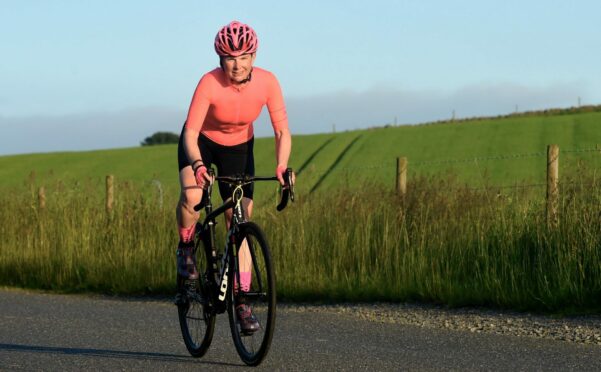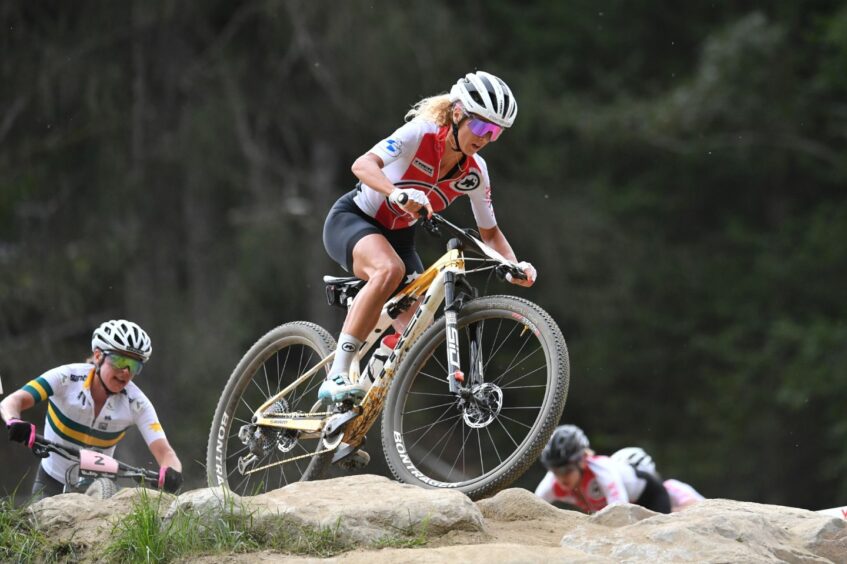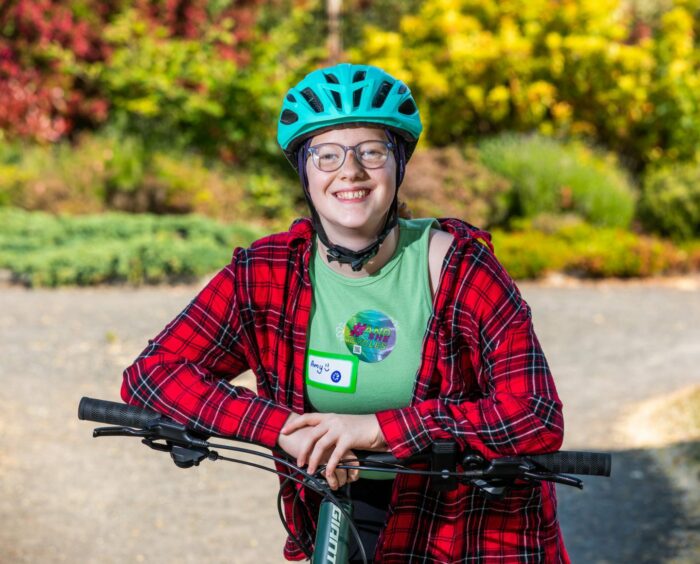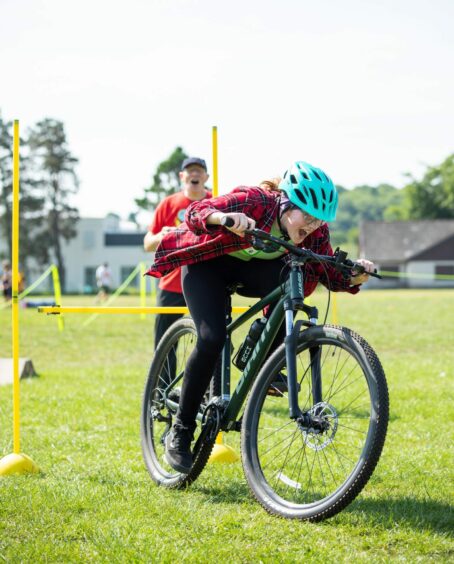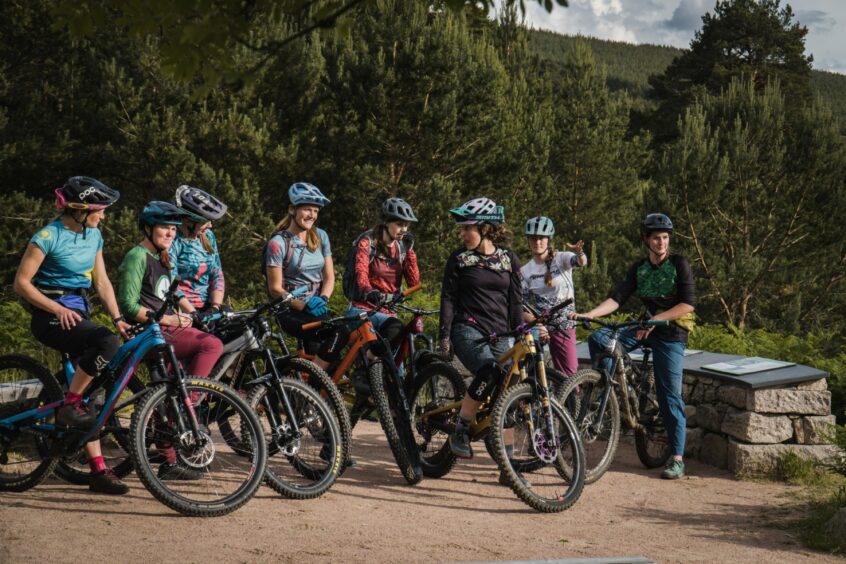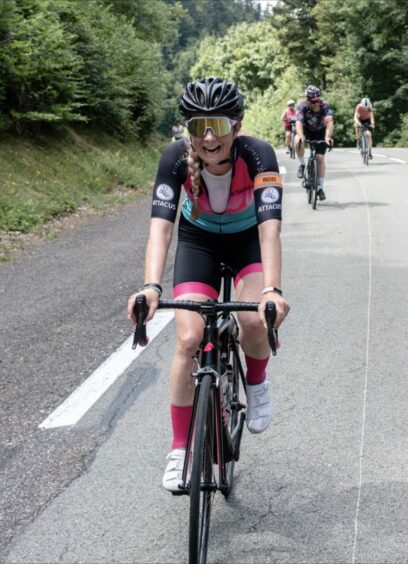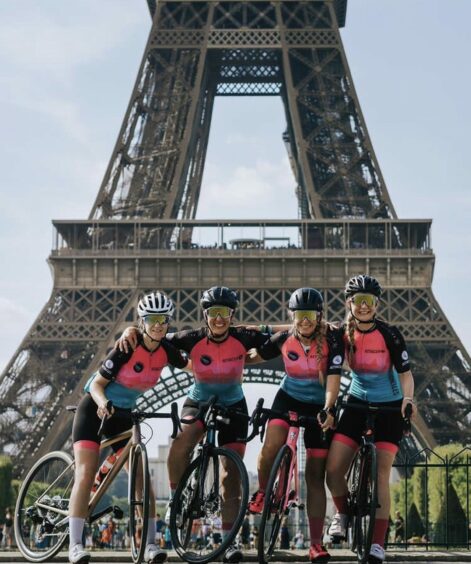All eyes are on Scotland thanks to the UCI Cycling World Championships, with 11 days of action planned for the event which is the first of its kind.
Coined #PowerOfTheBike, regions across Scotland will play host to the world’s greatest cyclists who will compete across 13 championships – from BMX racing to para-cycling.
These are no ordinary championships thanks to some of Scotland’s toughest terrain; the Mountain Bike Downhill event saw riders take on jumps and rock gardens against the clock at white-knuckle speeds of up to 80km/h.
The course in Fort William is considered to be one of the most mentally and technically challenging and drops 550 metres, while the Gran Fondo is a long-distance mass participation event that celebrates competitive cycling for everyone.
Be warned, there’s still an element of competition however, as the top 25% of riders from 27 qualifying events held around the world have been invited to compete.
Tour de France Femmes achieved after 33 year fight
Organisers of the championships have pushed for equality, diversity and inclusion, with initiatives such as free period products available at all championship venues in partnership with local authorities.
Just as the lionesses roared to victory at the Euros, could female cyclists finally see their pedal power pay off?
The Tour de France Femmes got underway last year for the first time since 1989, meaning a generation of women who have long been denied the opportunity to race on the sport’s most renowned stage now finally have the chance after a 33 year fight just to be on the start line.
Previous events, including La Course, were criticised as a one day offering up and down the Champs Élysées – in comparison to the all male Tour De France which is split into 21 stages across a variety of terrain.
If women are to truly cross the finish line however, campaigners believe there needs to be opportunity for getting on your bike in the first place.
It is well documented that by the time girls start secondary school, there is a sharp decline in how many continue to cycle in comparison to boys.
If equality in the world of cycling is to be achieved, do we need to look at your average ride to the shops alongside competitive sport?
We’ve spoken with Sustrans about their #AndSheCycles campaign, alongside one of the co-founders for a Scottish mountain bike festival for women, and Lucy Ritchie who is a proud InternationElles and Vanelli Project Go Team cyclist.
Empowering teenage girls to cycle
#AndSheCycles was launched in a bid to address the barriers faced by teenage girls and young women when cycling, and was co-developed in 2020 by a group of young women, aged 13-18, across Scotland from 14 different schools, youth groups and colleges.
Some of the most significant barriers identified included a lack of roles models, low confidence and feeling embarrassed/ self conscious.
The official campaign started up in 2021, and initiatives included girls-only led rides alongside an #AndSheCycles Festival – the first of which took place last year.
Aberdeenshire festival sees young girls come together
Inverurie played host to this year’s festival, which was held in collaboration with Garioch Rugby Club and Cycling UK.
The initiative which took place in June, saw 20 girls meet up for led rides and obstacle courses.
For Project Officer, Ali Arnott, the campaign is slowly breaking down barriers.
“There’s a whole host of barriers which have been identified by focus groups across Scotland,” said Ali.
“What came up time and time again was a lack of visibility, using your bike wasn’t seen as a normal thing to do.
“Riding your bike to school was seen as outside of the norm for teenage girls, and they’re not seeing that kind of representation on social media.
“It was viewed as a sport rather then as a way to get about.
Importance of myth busting
“Cycling was something for middle aged men in lycra, we want to bust that myth.
“There’s a massive drop off when girls goes to secondary school, partly due to that added fear of judgement.
“Our focus groups also told us that boys could become competitive in some cases, harassing girls who were riding a bike.”
Sustrans also believes that the message of using a bike as a mode of transport is getting lost, but the campaign is gradually going in the right direction.
“Our first video on social media had over a million views, and there is at least awareness of this gender gap and the fact that it is unfair,” said Ali.
“Part of our message to young girls is that we are here, and we are listening to you.”
You can’t be what you can’t see.
At the end of this month, women will gather in Glen Tanar within Cairngorms National Park for a festival with a difference.
Limitlass is an empowering community which culminates in a mountain bike festival by women, for women.
The initiative which takes place from August 18-20, will see an inspiring weekend of mountain biking, skills coaching, guided rides and wellbeing.
Limitlass was founded by Anna Riddell, Fiona Finnie and Katie May, and there is also a crew of female coaches, guides, mechanics, trail builders and volunteers.
Fiona is originally from Aberdeenshire before moving to the Cairngorms; she has ridden and raced all over Scotland, competing as a soloist at Strathpuffer and racing the Scottish Enduro Series.
She believes mountain biking in particular could help teenage girls navigate numerous challenges.
Importance of showing up
“I was very unsporty when I was at school, I didn’t enjoy PE,” said Fiona, who is a marketing manager.
“I didn’t come across the sort of things I would have enjoyed until much later in life.”
Fiona’s first experience of mountain biking was in 2016, when she borrowed a bike for an event in Aviemore.
“There was over 100 women there, it was so inspiring,” said Fiona.
“I was hooked on the freedom, the people you meet and the places you can go.
“We need more events aimed at women and young girls across Scotland.
“What we do is ease women into the world of cycling, a lot of women will message us saying they are worried about holding people up.
“We are a really welcoming community, I think the most important thing is just show up.
“I still remind myself of that if I’m nervous before a race.
“You’re there representing women, if they see you doing it then they can think, I can do that too.”
A new way of doing things
Fiona believes lack of role models can be an issue for young girls, and creating a network of friends who also ride could be the way forward.
“Young girls should be exposed to different types of exercise, cycling is one of the few sports you can do your own but with company,” she said.
“It’s a shared experience, but you are personally overcoming obstacles all the time .
“You can use that resilience in day to day life.
“The World Championships are putting Scotland’s trails on the world stage, that can only be a good thing.
We cannot rest yet.
Oil and gas worker Lucy Ritchie has long campaigned for equality in women’s cycling, having previously joined an international team of female cyclists in a bid to raise awareness.
The InternationElles consists of 10 female cyclists from around the world, who are united in their bid to boost women’s cycling.
In 2019, the group completed the exact same route as the all male Tour de France, and were finally at the finish line last year to cheer on riders in the first Tour de France Femmes for 33 years.
The event finally enables women to compete across an eight day multi stage event, and has gone some way to closing the gap.
Equal opportunities
“We rode from stage to stage showing our support, and it was emotional to see that everything was done in the same way as Tour de France,” said Lucy, who works for Shell.
“The names were painted on the road, there was the caravan – it was brilliant.
“The most humbling thing was all the riders smiling and waving.
“It’s sad that women have to feel grateful for being given an equal opportunity.”
Lucy believes there are greater opportunities for women coming from grassroots cycling, in comparison to male riders who often have to be part of a team complete with sponsorship.
“With Tour de France Femmes, it’s a chance for the next generation watching and thinking, I could win a stage,” she said.
“In some ways there are barriers whether you are male or female, it can be quite a cliquey sport and people think they need all the gear.
“I also think that for young girls putting on lycra which isn’t the most flattering, could potentially put them off.
“I still think we can’t rest yet, we can’t take our foot off the gas.”
Maternity pay not adding up
Lucy feels that races such as the Giro Rosa don’t receive enough coverage, because it is held at the same time as Tour de France.
Many professional female cyclists also have to juggle a full time job because sponsorship and winnings does not match their male counterparts.
Safety, body image and opportunities are improving, but there is still work to be done.
“It’s partly generational, there’s a generation older then us who will never accept that women are equal,” said Lucy.
“Wout Van Ert left Tour de France early to be with his wife who was pregnant, but where is the maternity leave for women riding Pro Peloton?
“We’re not quite there yet, the women’s tour of Britain was cancelled due to lack of funding and it’s happening with quite a lot of races.
“In comparison, the men’s tour still went ahead.
“At the same time, we’re going to having the best female cyclists in the world come to Scotland for the championships.
“That’s pretty exciting.”
